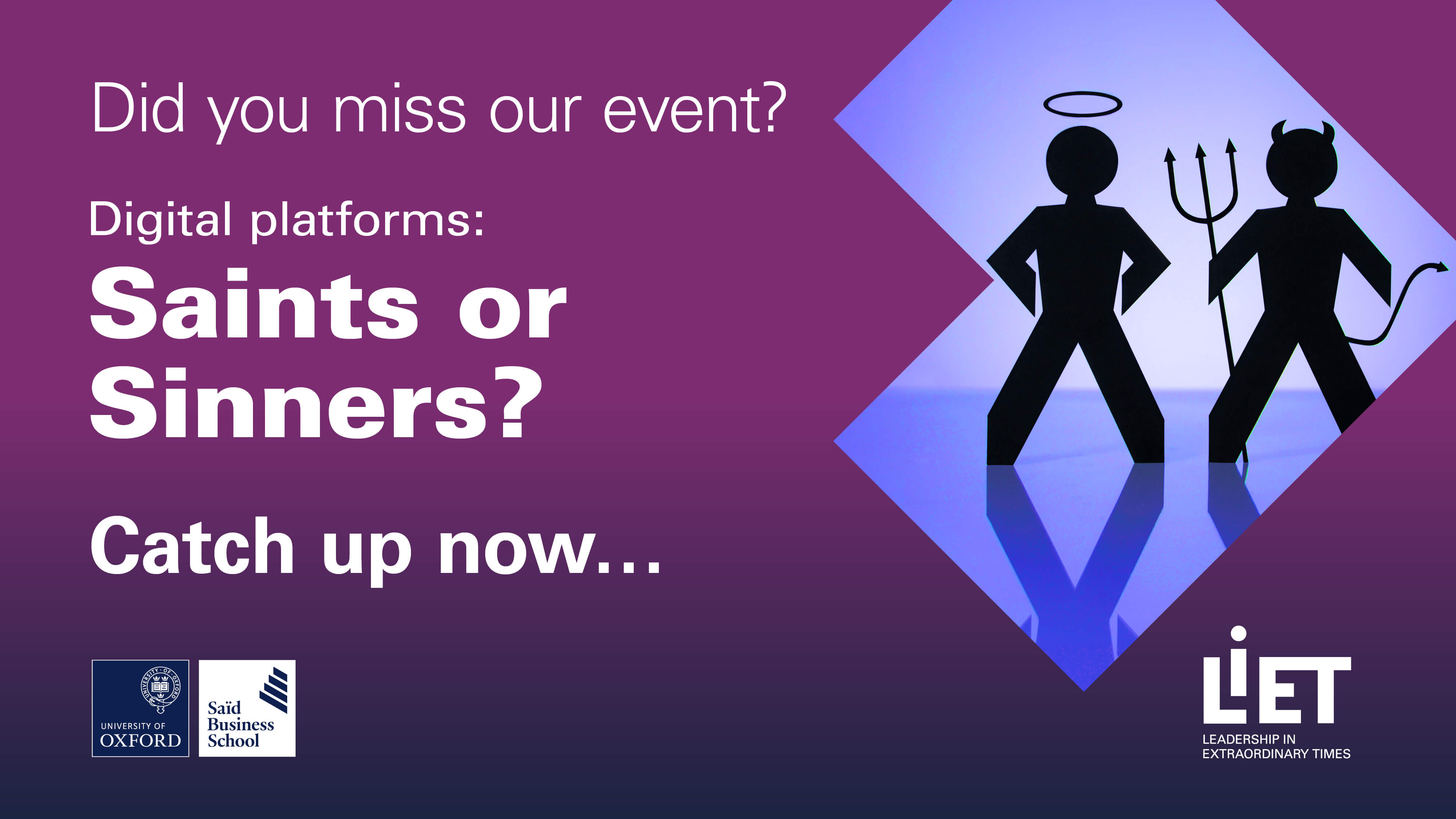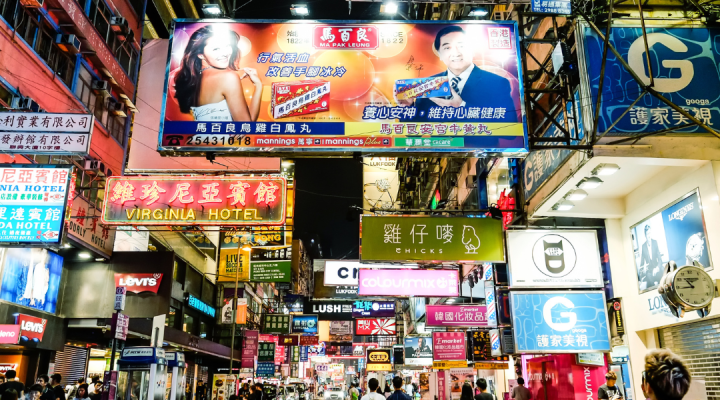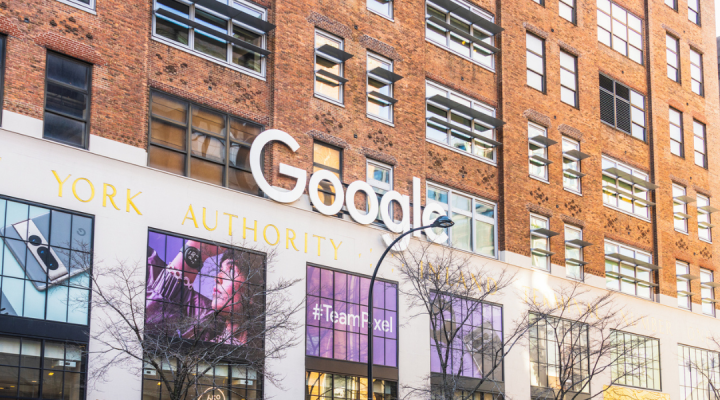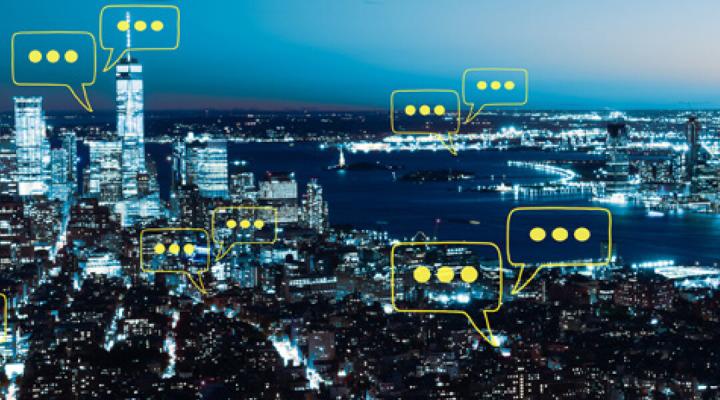Digital platforms: Saints or sinners?

Catch up on the latest Leadership in Extraordinary Times event
One day they’re the facilitators of online bullying and widespread misinformation, collecting our personal information and cutting a swathe through the high street; the next they’re democratising access to global markets and disrupting complacent establishment giants. Are digital platforms sinners—or saints? An all-faculty panel drew on their research into subjects as diverse as social media, entrepreneurship, and the dark web to address this question in the Leadership in Extraordinary Times broadcast on 16 March 2021.
Introduced by L’Oréal Professor of Marketing Andrew Stephen, Cammy Crolic, Associate Professor of Marketing, Pinar Ozcan, Professor of Entrepreneurship and Innovation, and Felipe Thomaz, Associate Professor of Marketing, discussed the benefits and disbenefits of digital platform use by individuals and businesses, as well as implications for innovation and future regulation.
While there is a sense in which digital platforms are just ‘tools’ and that we can blame human nature for putting those tools to malicious or criminal use (Felipe Thomaz’s research on the ‘dark web’ revealed how platforms for agricultural exchange were used to traffic wildlife), the panel raised some interesting points that painted a much more complex picture.
New types of digital platform are creating new benefits Business-to-business platforms in finance and professional services are proving highly valuable to entrepreneurs, and other platforms make it easier to identify partners, suppliers, and commercial networks.
Data is driving competition The more data that platforms have the better and more tailored the content they produce. Concerns about privacy come less from consumers than from the platforms that want to give privacy in order to prevent competitors having the same access to data.
And data is facilitating the digital colonisation of regulated industries For example, Google has a partnership with the UK’s NHS in which they give AI-based diagnostic services in exchange for data. This saves lives and money, but shows how, even in highly regulated industries, platforms are becoming increasingly powerful and monopolistic data-keepers.







